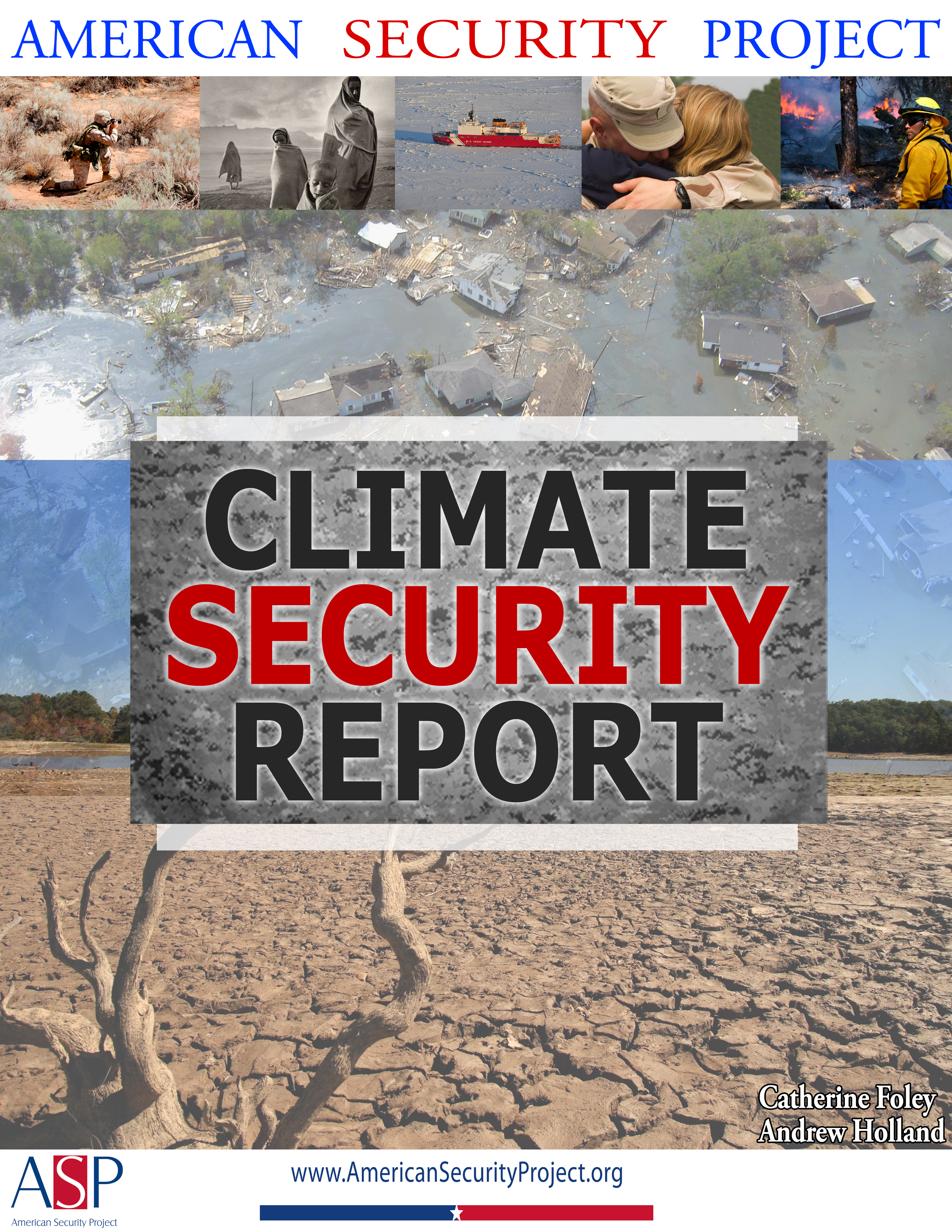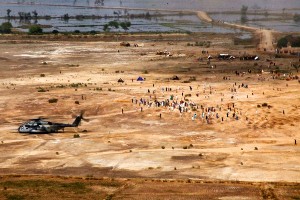
A “Climate Security 101”
 On Wednesday, September 11, 2013, I spoke to an off-the-record briefing of Senators and staff in the Senate Democratic Steering Committee about the direct economic impacts of climate change on jobs and communities across the country
On Wednesday, September 11, 2013, I spoke to an off-the-record briefing of Senators and staff in the Senate Democratic Steering Committee about the direct economic impacts of climate change on jobs and communities across the country
The event itself was off the record, so I won’t divulge which Senators attended or who else were the briefers, but I will say that I learned a great deal of new information about the impacts from a range of issues.
What I told the committee is a good example of how to explain how climate change is impacting security, and how that affects regular Americans. Consider this blog a “Climate Security 101.”
ASP studies issues of America’s long-term national security – and our studies indicate that climate change ranks high in that list. Climate change is often wrongly categorized as an environmental issue alone. More properly, it is a cross-cutting issue that will affect a range of other things – ranging from human health to economic growth, from wildlife conservation to national security. When we talk in terms of national security, climate change is properly termed a “threat multiplier” or an “accelerant of instability.” That means that we shouldn’t expect that climate change alone will cause conflict, but that it already is and will be a factor in conflicts.
Security planning is about risk assessment – no climate scientist or forecaster can tell you with certainty what it will look like. Instead, we must plan for a series of contingencies. And – our military is planning for this: so are militaries around the world. Our ongoing research in our “Global Security Defense Index on Climate Change” indicates that the vast majority of militaries around the world –over 71% – are planning for the threats of climate change.
There are particular ‘hotspots’ where climate change could be particularly destabilizing are the Pacific and Southeast Asia because of the combination of sea level rise and coastal storms, Central and Western Africa, where even slight warming can undermine food productivity, or the Indian Subcontinent, where cross-border rivers and changing water supplies intersect with a range of traditional security threats, like nuclear-armed neighbors.
The result of this is that climate change will significantly increase the operational demand for interventions by American military forces. That ranges from disaster aid to stability operations, peacekeeping to warfighting. The actual operational tempo, of course, will be decided by Congress and the President. I would just say that in times of crisis, when a country dials ’9-1-1’ the U.S. Navy is first call.
However, I noted that we were today talking about the impact of climate change on communities and the homeland. This is not a problem solely for the developing world. Climate change poses a direct threat to U.S. homeland security, through its effects on critical infrastructure – including military bases – and its threats to the lives of our citizens, the economy, and energy security.
Some agencies, like EPA, FEMA, and the Army Corps have been working tirelessly to address the effects climate change will have on the national water, transportation and health infrastructure across the federal and local level. However, some objectives such as creating a nation-wide response plan or educating the public on climate change remain incomplete.
Finally, I should note that in the long-run, climate change – especially through sea level rise and the possible effects of food productivity declines – presents truly existential threats to our coastal cities and to the world’s ability to feed 9 billion people. While these effects are outside the usual 20-40 year window for security planners, how we choose to value future generations is an ethical consideration policymakers should consider.
For a deeper dive into climate security, there’s a wealth of information on our website. See our Climate Security website for more details. Our Climate Security Report is a detailed undertaking of both the national security and homeland security consequences of climate change. Our website has a wealth of climate security papers.





